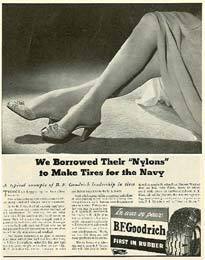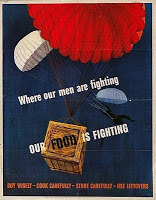Sarah Sundin's Blog, page 525
April 8, 2011
Without Love....
 Good works. Perseverance. Sound doctrine. Those are good things. But are they enough?
Good works. Perseverance. Sound doctrine. Those are good things. But are they enough?This past week I started a new Bible study on the book of Ephesians, team-teaching with two wonderful women. For the introductory class, we discussed the author and the audience—Paul and the church in Ephesus. The city of Ephesus was a major metropolis of 250,000 in the first century, and became the home of a large, vibrant, and influential church.
Paul wrote his letter to the Ephesians in approximately A.D. 60. He had no words of rebuke for the church. Indeed, they had a reputation for love, zeal, and sound doctrine.
However, thirty years later, John received the vision recorded in the book of Revelation. Jesus gave John seven messages for seven churches, and the first message was for the church in Ephesus. Jesus commends them for their hard work, perseverance, and refusal to tolerate false teachings. Yes, those are good things.
But Jesus had something against them: "'You have forsaken your first love'" (Revelation 2:4). He says if they don't repent, He would remove their church. A stiff and sobering warning.
This is the danger for the mature church and the mature Christian. We start off with love and zeal. As we grow and learn, we add sound doctrine and good works, as we should. But if we're not careful, our love can cool.
"If I have a faith that can move mountains, but have not love, I am nothing. If I give all I possess to the poor…but have not love, I gain nothing" (1 Corinthians 13:2-3). Without love, all our good works become busywork. Without love, all our perseverance becomes grumbling stubbornness. Without love, our sound doctrine becomes smug self-righteousness.
What can you do today to keep your love strong?
Published on April 08, 2011 05:00
Today in World War II History
70 Years Ago—Apr. 8, 1941: British take port of Massawa, Eritrea, securing Eritrea (part of modern Ethiopia) and driving Italians from last of Red Sea ports, opening sea to Allied ships.
Published on April 08, 2011 03:00
April 7, 2011
Today in World War II History
70 Years Ago—Apr. 7, 1941: Germans take Derna, Libya, and also capture British generals Richard O'Connor and Philip Neame.
Published on April 07, 2011 03:00
April 6, 2011
Book Beat - The Deepest Waters
 Doesn't the cover of this book grab you? If the cover doesn't, the story will. In The Deepest Waters, Dan Walsh spins a compelling story inspired by a real-life incident.
Doesn't the cover of this book grab you? If the cover doesn't, the story will. In The Deepest Waters, Dan Walsh spins a compelling story inspired by a real-life incident.In 1857, John and Laura Foster are heading to New York on the modern steamship, the SS Vandervere. After a hurricane strikes, the women and children are rescued by a sailing ship while the men flounder on the open sea. Laura believes she's a widow, alone again, mourning her beloved husband. She takes inspiration from Micah, an elderly slave who works on the boat, and his little dog, Crabby. As Laura struggles with despondency, John battles the elements, both believing they'll never see each other again.
Dan Walsh proves his ability to write a gripping, emotional story, as he did in his earlier World War II books, The Unfinished Gift and The Homecoming. The miraculous elements of the story might come across as unbelievable - except those elements came from the real-life steamship sinking! Laura's friendship with Micah is beautiful, and the effect of the disaster on the high-society Foster family is touching.
I highly recommend this lovely novel.
Published on April 06, 2011 05:00
Today in World War II History
70 Years Ago—Apr. 6, 1941: Germans invade Yugoslavia and Greece. Luftwaffe bombing destroys Belgrade, Yugoslavia, killing 17,000. British and South African troops take Addis Ababa, Ethiopia, first capital city liberated from Axis.
Published on April 06, 2011 03:00
April 5, 2011
Today in World War II History
70 Years Ago—Apr. 5, 1941: Anti-German Yugoslavian government signs treaty of friendship with USSR.
Published on April 05, 2011 03:00
April 4, 2011
Make It Do - Stocking Shortages in World War II
 For American women, a shortage that affected daily life was the shortage of stockings. Before the war, no well-dressed woman was seen in public without hose, and silk stockings were a necessary part of every woman's wardrobe.
For American women, a shortage that affected daily life was the shortage of stockings. Before the war, no well-dressed woman was seen in public without hose, and silk stockings were a necessary part of every woman's wardrobe.Nylons Introduced
Nylon was invented by DuPont in 1938, and nylon stockings were demonstrated at the 1939 New York World's Fair. When they came on the market on May 15, 1940, over 750,000 pairs were sold on the first day. They sold for $1.25 a pair, the same price as silk, but their shrink-proof, moth-proof nature made them very popular.
 Silk Shortage
Silk ShortageJapan was the sole supplier of silk to the US, and deteriorating trade relations in 1941 cut off the supply. Silk was used for parachutes and was the best material for powder bags for naval guns. When the guns were fired, the silk completely disintegrated without leaving any damaging residue. To protect this precious resource, the Office of Production Management (OPM) seized the nation's supply of raw silk on August 2, 1941. This set off such a shopping frenzy for silk stockings that most retailers set a purchase limit of two or three pairs. The price of nylon stockings subsequently rose to $10 a pair or more.
 Nylon Commandeered
Nylon CommandeeredNylon was produced from chemicals vital to the war effort, and was also needed for parachutes. In addition, nylon was used to make rope stronger and to supplement rubber (which was also short) in tire production. As a result, the War Production Board (formerly the OPM) commandeered DuPont's stock of nylon on February 11, 1942. From then on, DuPont's production of nylon went to war materials.
Collection of Stockings
Used stockings were also valuable. Used silk stockings were made into powder bags for the Navy, and used nylon stockings were melted down and re-spun into nylon thread that could be used for parachutes. When stockings developed holes or runs, women were encouraged to turn them in at the hosiery department of their local store.
 Making Do
Making DoWomen treated their remaining stockings with great care, often reserving them for special occasions. Rayon or cotton stockings were worn, but not fondly, as they tended to sag around the knees. The rising popularity of slacks helped, but most women resorted to bare legs, sometimes with ankle socks for more casual wear. To simulate the look of nylons, women used leg makeup from cosmetics companies such as Max Factor. These "liquid stockings" were reported to last up to three days if the woman didn't bathe. If possible, a "seam" was painted down the back of the leg with an eyebrow pencil by a friend or family member. This leg makeup was endangered when a lady crossed her legs or when it rained.
Published on April 04, 2011 05:00
Today in World War II History
70 Years Ago—Apr. 4, 1941: German forces under Gen. Erwin Rommel take Benghazi, Libya.
Published on April 04, 2011 03:00
April 3, 2011
Today in World War II History
70 Years Ago—Apr. 3, 1941: Luftwaffe air raid on Bristol, England.
Published on April 03, 2011 03:00
April 2, 2011
Today in World War II History
70 Years Ago—Apr. 2, 1941: RAF drops 75,000 tea bags in Holland to increase Dutch morale. Clash between union and non-union miners in Harlan KY leaves four dead.
Published on April 02, 2011 03:00



